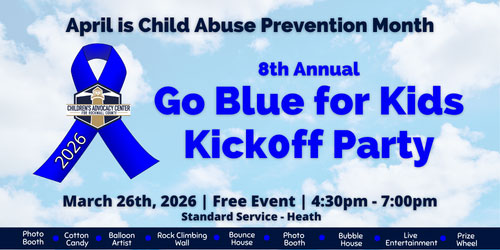(ROCKWALL, TX — March 13, 2019) She was unstoppable and courageous. At least her pink shirt said so. But her sudden wailing revealed something else. She was rigid with fear after a sharp-toothed terrier rejected her affection.
When my granddaughter suffered two wounds and received a few stitches for each, we gained a reminder about trusting my old dog. We had another refresher as well: not to trust ourselves. We had each let our guard down.
This little accident was costly and disruptive since my visiting family missed their flight home that day. And we weren’t the only casualties in town. All 50 treatment rooms at the hospital’s ER were filled.
God grants each of us a measure of physical strength, intellect, wealth, and influence, along with supportive families, friends, churches, and communities. But any of these can fail us in a moment. All created things and people are subject to evil, injury, loss, and reversal, besides the natural courses of decay.
Our self-empowerment-loving culture plies us with assurances that we can accomplish whatever we aspire to—the power lies within us. This idea is partially true, yet God’s Word adds wisdom: “The race is not to the swift, nor the battle to the strong . . . time and chance happen to them all” (Ecclesiastes 9:11*).
Sometimes we’re just in the wrong place at the wrong time, like the 18 people of Jesus’s day who visited a tower on the day it collapsed. The Lord used the awful event to warn his followers that those who suffer calamities are no worse than others—all of us sin sufficiently to merit punishment (Luke 13:4, 5). Jesus urges us to prize eternal life above this one.
As Christians, we already know to trust in God through Christ above all else. But it helps us to undergo a test now and then to prove whether our head knowledge has informed our deeper fibers. (An actual driving test reveals more than the written one we can pass with a bit of study.) Proverbs 17:3 says, “The crucible is for silver, and the furnace is for gold, and the Lord tests hearts.”
An accident that alters our plans can reveal our tendency toward anger and the need to blame someone. But these emotions suggest a trust issue: “Why did God allow this to happen?” Any misfortune may leave us sullen and depressed, which also indicates our trust level, saying effectively, “Either God doesn’t care about me or else he can’t fix this.” C.S. Lewis observed, “Surely what a man does when he is taken off his guard is the best evidence for what sort of man he is.”
Those who love God are not immune to suffering and loss. And it’s human to respond to pain with howling. The writer of Psalm 73 confessed, “When my soul was embittered . . . I was like a beast toward you. Nevertheless . . . you hold my right hand. You guide me with your counsel (vss. 21-24).
Any poor “test” results can help us improve our trust-in-God quotient as we learn not to trust in ourselves. This will yield a better outcome after the next round of trouble, which will come as surely as sparks fly upward (Job 5:7). Jesus said, “In me you may have peace. In the world you will have tribulation. But take heart; I have overcome the world” (John 16:33).
Difficult circumstances, if we let them drive us toward God, will allow us to experience his abiding presence. Then we’ll be courageous for the right reason.
*Scriptures from the English Standard Version
By Patti Richter. Patti writes and edits Christian faith articles. Read more of her essays at blueribbonnews.com/category/faith.
 Our monthly print edition is delivered free to ~22,000 homes in Rockwall and Heath, TX.
Our monthly print edition is delivered free to ~22,000 homes in Rockwall and Heath, TX.
To share your good news and events, email editor@BlueRibbonNews.com.
Subscribe to our email newsletter here.
Advertising: 214-342-8000 or advertising@BlueRibbonNews.com.







